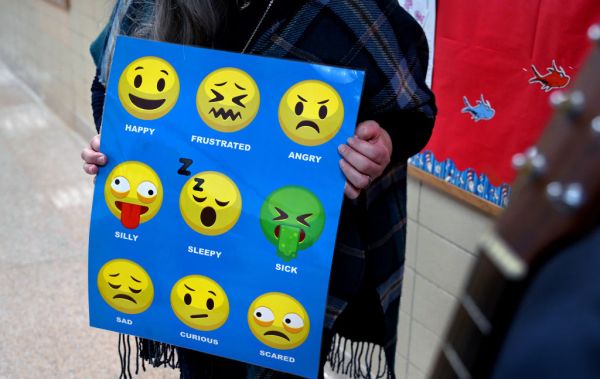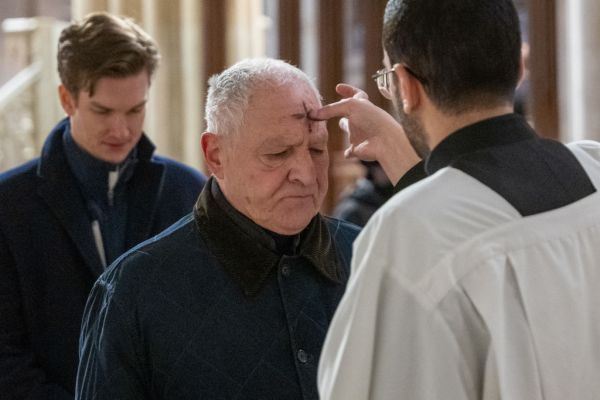In Athens during the fifth century B.C., Socrates sat on a street corner accosting people on their way to work: “Good Sir, you are an Athenian, a citizen of the greatest city with the greatest reputation for both wisdom and power; are you not ashamed of your eagerness to possess as much wealth, reputation and honors as possible, while you do not care for nor give thought to wisdom or truth or the best possible state of your soul?”
This passage, taken from Plato’s Apology of Socrates, has always fascinated me as a reflection of the way human beings will do anything to avoid the most basic and essential questions of life: meaning, existence, purpose, and morality. What were these Athenians distracted by? They had no social media or text messages or podcasts to preoccupy them on their way to work. What kept them from using their daily commute as a time to reflect on “wisdom or truth or the best possible state” of their souls? Something about the human heart works hard to avoid honest reflection on the meaning of our existence. And yet at the same time, a life without meaning is hardly worth living.
Such is the dual nature of humanity: We avoid the very thing that makes our life fulfilling.
And I suspect this tension is partially responsible for the current mental health crisis that is deeply affecting our nation. According to the National Alliance on Mental Health, more than one in five adults experienced a mental illness in 2021. Young Americans have been particularly affected. The situation has grown so bad that President Joe Biden announced a strategy for addressing it in his 2022 State of the Union address. While this crisis is certainly multicausal, it’s reasonable to assume it’s related to our disconnection from meaning. The less we feel like our lives are meaningful, the more miserable we will be.
“The only thing that consoles us for our miseries is diversion,” philosopher, mathematician, and all round whiz kid Blaise Pascal wrote in the 17th century in his Pensées. “And yet it is the greatest of our miseries. For it is that above all which prevents us from thinking about ourselves and leads us imperceptibly to destruction. But for that we should be bored, and boredom would drive us to seek some more solid means of escape, but diversion passes our time and brings us imperceptibly to our death.”
For Pascal, this hardwired drive to diversion is a kind of will to death. If we didn’t divert ourselves, we’d have to face our existence head-on and find some escape from meaninglessness. As with ancient Athens, I wonder what diversions were so engaging in the 17th century that kept people from contemplating the meaning of life.
Though humans have always had this aversion to contemplation, the structures and technologies of society haven’t always been so intensely and intentionally designed to prevent contemplation as they seem now. Everything in our world calls out to us, demands our attention, inserts itself into our field of vision or hearing. You can’t even pump gas without a screen built into the pump blaring out some video. In a historically unimaginable way, it is not only possible but quite common for modern people to spend the moment they wake up to the moment they fall asleep engaged with some form of media. Never alone. Never able to contemplate the state of their soul.
We are in the middle of a crisis of meaning in the West, a widely shared sense that our lives lack substance and significance. Scholars such as cognitive scientist John Vervaeke have tied it to our mental health crisis. And I believe a major reason for this crisis is that the structures of our environment prevent us from engaging with the tangible world in a way that creates what philosopher Hartmut Rosa calls “resonance.” The experience of resonance occurs when you come in contact with the world and feel your inability to master and control it. You are moved by a scene in nature or a line of poetry, and you engage those things in a way that accepts that they are outside of your control. They have an independence that matters and resonates with you, but it is not dependent on your recognition of such to be meaningful in themselves.
But we also lose one of the fruits of experience of resonance: meaning and wisdom. Rosa, in his short but brilliant book, The Uncontrollability of the World, argues that modern people feel like the world is retreating. Life feels flat, stale, and mute. The universe no longer speaks to us with meaning. Instead, we try to impose meaning on the world through our active control over nature and our lives.
Perhaps you see children playing in a sprinkler on a hot day, and the beauty and simplicity of that experience resonates with you deeply. You drink in the moment and savor it without trying to capture it with a picture or record it or control it in some other way. We lose the ability to have these moments when we are constantly connected to media.
Part of this experience of meaninglessness comes from living in what philosopher Charles Taylor calls, in his book by the same title, “a secular age.” It includes an expanding horizon of belief systems for us to adopt. These include traditional worldviews like Christianity and communism, but they also include causes and lifestyle options like environmentalism, diet and fitness culture, and political activism. According to Taylor, all of these beliefs feel tentative, uncertain, and contested in a secular age. Most of us no longer effectively believe in an external world (a world of resonance!) that has inherent meaning in it. Instead, we believe that all the meaning in the world has been placed there by us, by a choice we make. A flower isn’t inherently beautiful; its beauty is something I choose to ascribe to it. Sex isn’t inherently meaningful; its meaning is entirely something I choose to define. The world is mute: It has nothing to tell us because it cannot speak. It is raw, material existence.
The problem with this is that it doesn’t feel like meaning is only self-created. I write about this in my book You Are Not Your Own: Belonging to God in an Inhuman World. The love I have for my family feels like it is something real and tangible and external to me, something I either resonate with or ignore. But the meaning is always there. The only question is whether I am too distracted by my smartphone to recognize that love or not.
And this is the fundamental challenge for modern people. To live the good life requires reflection on what the good life is and resonance with the real world. But our environment, by design, keeps us from this reflection and mediates the real world so we don’t experience resonance. It keeps us from contemplating both our sin and fallibility and the reality that we are made in the image of God. When we follow the wisdom of Socrates and Pascal, and when we experience the world through resonance, we discover that existence itself is a miraculous gift. And that gift has a Giver who desires us to know Him and believe in Him. We discover that the crisis of meaning can be overcome by connecting to the real world and understanding our need for a savior.
Our nature is to avoid ourselves and life’s big questions. Our modern environment enables this avoidance through technology. But the result of this avoidance is not peace, but as Pascal calls it, “misery,” and the current mental health crisis affecting so many Americans is an example of this misery. To overcome this misery, we need to work against our environment, discovering that the world is resonant with meaning imbued by a loving God who calls us to Him.






Please note that we at The Dispatch hold ourselves, our work, and our commenters to a higher standard than other places on the internet. We welcome comments that foster genuine debate or discussion—including comments critical of us or our work—but responses that include ad hominem attacks on fellow Dispatch members or are intended to stoke fear and anger may be moderated.
With your membership, you only have the ability to comment on The Morning Dispatch articles. Consider upgrading to join the conversation everywhere.